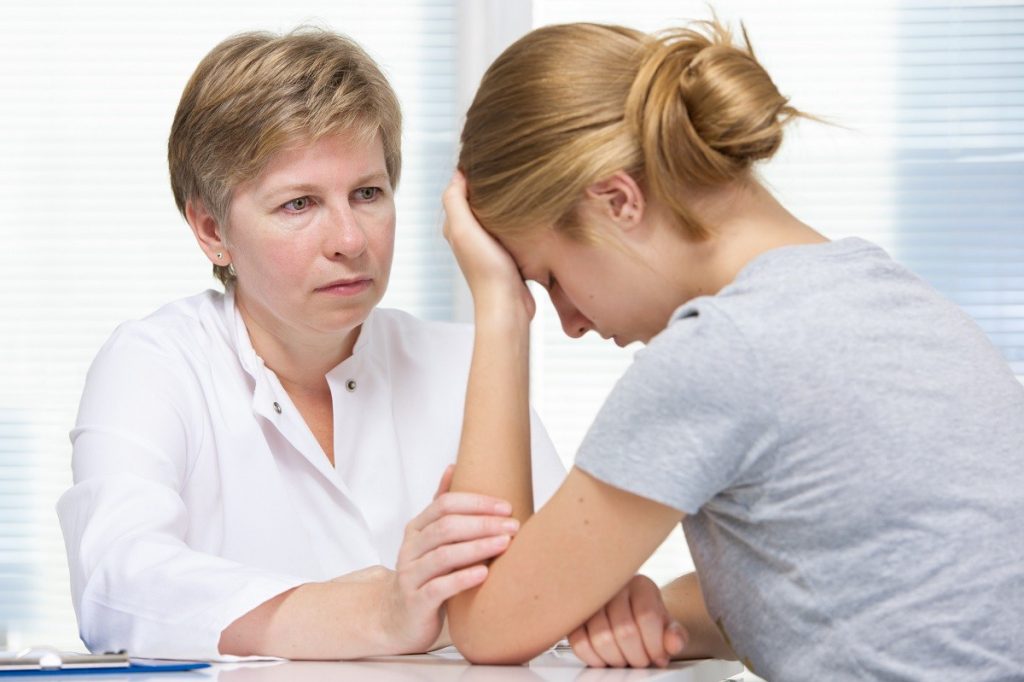Nearly everyone needs time to adjust to having cancer, but for about one person in four this adjustment can be particularly painful, and the individuals concerned suffer from clinically significant anxiety and depression. It may be that some people do not give themselves time to adjust to the changes which cancer brings to their lives. More than 50 per cent of women who have a mastectomy return to work within three months of their operations.
Cancer can be a time for changes and growth. But these positive changes can only occur when the depression is left behind.
Sinking into the doldrums for a while is natural. But if your depression lingers, no amount of well-meaning advice to ‘pull yourself together’ will help. If you could have done it by yourself, you would have done so.
Many people are reluctant to seek help because they are afraid of seeming weak in the eyes of the world. But none of us would condemn a friend who needed medical help for cancer-induced depression, so why are we so hard on ourselves?
If you sink below a certain point you are simply unable to help yourself: You can go into a negative spiral where you feel depressed and so anxious that your pain levels rise, and any symptoms seem much worse. In that phase, you need a tremendous amount of input before strong enough to help yourself.
Others counsels against wasting energy by keeping up a falsely brave face. Some people are bad about accepting their vulnerability, and too embarrassed to ask for help, and yet if they break a leg, they accept people running around for them. We can lose valuable energy keeping things looking as if they are OK when they are not.
Complementary therapies
Complementary therapies such as visualization and relaxation play a vital role in recovery from cancer. However, trying to practice them alone at home, when your morale is at rock bottom, she warns, is doomed to failure.
Complementary therapies work by unblocking the energy so you can re-integrate your body, mind and spirit. You will need a lot of input from others – healers and therapists – and you may need to practice some of your therapies in a class with others rather than trying to manage at home.
One day you will wake up, knowing you can take on these processes for yourself. You could end up beating yourself up because you haven’t got the energy or motivation to go through with it. You need the help of therapists, and you really need to be in a class with others.
Antidepressants
People wonder why it is necessary to consider antidepressants. After all, depression in the face of cancer is a natural reaction, and the antidepressants cannot change the course of the disease.
I would agree that feeling low for a while does not warrant treatment. But if depression really sets in, people can sink so far that they are unable to cope with everyday life. This can blight the recovery of someone whose cancer is curable, or in lengthy remission.
Once people are no longer regularly coming to the hospital for check-ups or treatment, they have to face up to their anxieties. Often, they feel they should be happy and end up feeling upset.
In most people these feelings last only for a short time, and acknowledging them, and realizing such feelings are normal, all help them to move to the next phase. But when these feelings linger, antidepressants are needed. As a guideline, if you are feeling a bit miserable, thinking negatively but getting on with your life, then you may not need drug treatment – unless these feelings linger for two or three months.
However, if depression is so severe that you are crying all the time and can’t be bothered to get up and dressed in the morning, then you need help quickly. If things are really bad, a friend or relative may need to call a doctor out to see you. Depression is an illness and should be treated as such.
Items to check before you should see your family doctor
If five of the items listed below apply to you – including depressed mood or a loss of interest or pleasure – then you should see your family doctor. If you keep thinking of suicide, you must get help regardless of how you score with other items on the list.
-
- Depressed mood
- Marked loss of interest or pleasure in daily activities
- Feelings of worthlessness or excessive and inappropriate guilt
- Significant weight loss or gain that cannot be explained by dieting, your cancer or your treatment
- Insomnia, early waking in the morning or, conversely, excessive desire to sleep
- Fatigue or loss of energy that cannot be explained by your condition or treatment
- Reduced ability to think clearly or concentrate
- Early morning miseries and mood swings during the day
- Jerky limb movements, or very slow movements
- Frequent thoughts of suicide
If you do need antidepressants, they work best if you take a full dose for at least six weeks. Your doctor will then probably reduce the dose and want you to continue for four to six months.
Many people want to stop earlier than this, but research has shown that the treatment works much better – and recurrence of depression is less likely — with longer courses of drugs. It may take several weeks before you feel the benefits of antidepressants and they can produce unpleasant side effects such as stomach upsets, dry mouth and lassitude. If this happens, the dose should be reduced or the drug changed.
Antidepressants are in a different class of drugs from tranquillizers, and you are extremely unlikely to become dependent on them. However, if you are unable to function normally because of disabling anxiety, you may need to take tranquillizers despite the risk of dependency.
In these circumstances, tranquillizers are most useful before and during an anxiety-provoking situation (such as chemotherapy) rather than on a daily basis. Some people find that relaxation techniques work just as well for them as drugs.

